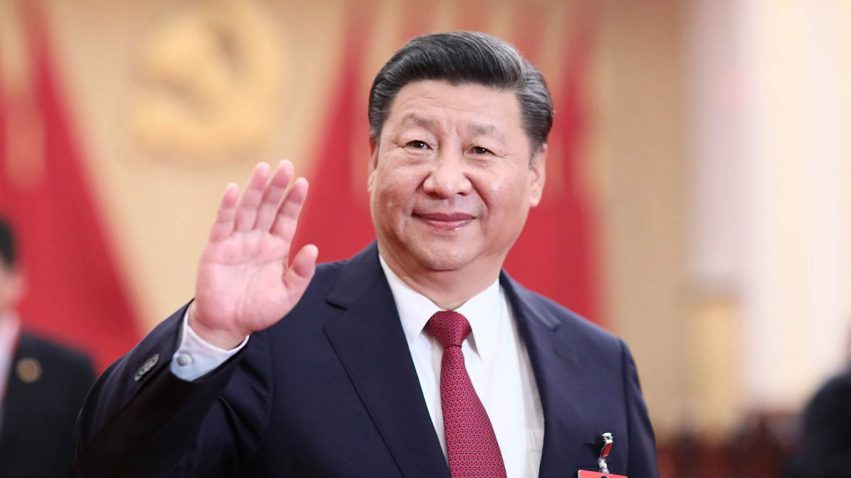By Ruan Zongze (Global Times, 7 February 2019) – This month, I attended the Raisina Dialogue 2019 in New Delhi. With the theme “A World Reorder: New Geometries, Fluid Partnerships, Uncertain Outcomes,” the dialogue in the Indian capital focused on geopolitics of the Indo-Pacific region. China became the main topic of discussion with some speakers even comparing the country to “the elephant in the room.”

In the 1990s, I visited the UK as part of an academic exchange program. That was my first visit abroad that gave me a peek into how foreigners viewed China. But back then, news about China was scarce. For foreigners, China was only a distant country that had nothing much to do with their daily lives. But today, globalization has changed public opinion, moving China from the fringe to the center. Nowadays, international conferences always discuss China and invite Chinese scholars. Many consider the country a challenger, an impression that is not likely to go away soon.
China’s rise is the most prominent cause of human development in the 21st century. Over a billion people making such achievements in a few decades is unprecedented. Data from China’s National Bureau of Statistics shows that GDP reached 90 trillion yuan for the first time in 2018, and GDP per capita stood at nearly $10,000. According to the World Bank’s definition, China is likely to enter the ranks of high-income countries by 2023. This means that the country will soon overcome the middle-income trap that many economies get caught in.
This year marks the 70th anniversary of establishment of the People’s Republic of China. The country has explored a path of peaceful development. In 1949, Chinese people began to stand on their own feet. In 1978, China launched its reform and opening-up policy. China’s entry into the WTO in 2001 made the country become closely associated with the whole world. In the 2008 financial crisis, China bravely stepped forward and pulled together with the international society in times of trouble. When facing a crisis, China has to move together with the world. Currently, populism is rising in many Western countries, and they may have mixed feelings about China’s rise. I have sensed such feelings during international conferences in recent years. But instead of introspecting, these countries’ political elites tend to find scapegoats. For example, some people regard the success of non-market economies as a challenge. Their intention is all too clear.
China is now in the spotlight, and people look at the country with skepticism. Some people always have a bias against China’s system. On one hand, they have to admit that China’s achievements are astonishing. But on the other, they don’t want to admit it, and always regard its rise a threat. Some people believe the China-US relationship has fallen into the Thucydides’ Trap, saying that the two countries are destined for war.
Our world is undergoing profound changes unseen in a century, and the uncertainties are increasing: climate change, regional conflicts, refugee problems and complicated geopolitics. The world economic slowdown also cannot be ignored. The International Monetary Fund (IMF) has slashed global growth forecast for 2019 to 3.5 percent from 3.7 percent in 2018. Currently, all countries need to work together to bring order out of chaos and create fair opportunities for everyone. No country can be completely cut off from the rest of the world.
As China’s rising is destined to experience ups and downs, the country should analyze the situation and accordingly adjust its approach.
First, China should strengthen believing in itself. Chinese people always remain mobilized for endeavors, which has led to China’s success and won worldwide acclaim. China devotes itself to improving the lives of 1.4 billion people vowing not to leave behind anyone stuck in poverty. On the land spread over 9.6 million square kilometers, there should be peace, tranquility and no chaos of war. This is consistent with the UN’s Millennium Development Goals and the 2030 Agenda for Sustainable Development, in addition to being a remarkable endeavor to promote the cause of human development. Different from other major countries that rose because of war in history, China’s rise depends on peaceful development. When some major countries are exhausting all their resources to build up their military, China keeps development as the central task. When some countries are building a wall at border, China is constructing bridges. As China grows stronger, the world will also become more peaceful and prosperous.
Second, China should have a strong heart to be able to cast off the shadow of historical suffering and look to the future. There will always be questions during a big power’s rise. As China is a large country, it can be easy for other countries to misread us. We should be able to differentiate between deliberate resistance to all of China’s decisions and that brought about by a lack of understanding. More importantly, China should proactively participate in international discussions and provide its perspective so as to create favorable international public opinion. As Chinese scholars, we are responsible for showing the world a real China.
Third, China should stay modest and prudent. China’s rise is an odyssey. Criticism and applause will always coexist. Some people treat China’s rise with a zero-sum and cold war mindset, but they don’t represent the international community. Only China can decide what kind of country it will become. No matter how many ups and downs it has to go through, China will never cease to make progress. Instead, it will open wider to the world, ratchet up reform and become more modest and prudent. Only this way will the country become more prosperous.
The author is executive vice president and senior research fellow at the China Institute of International Studies. [email protected]


